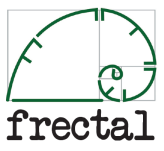Sometime after the NHS in England wound down its multi-billion pound National Programme for IT (2005-2013), the US Healthcare system is now in the midst of a similar national effort to roll out Healthcare IT.
The US Health Information Technology for Economic and Clinical Health Act (HITECH) of 2009 committed up to $25 Billion to promote and expand the adoption of Healthcare IT and bring the US Healthcare system into the 21st Century. One of the interesting aspects of the programme is that it involves a series of incentives for the Meaningful Use of such technology, which includes payments to healthcare providers of up to $44,000 per eligible professionals (e.g. physicians).
Yet despite such an effort and despite such unique incentives to adopt technology … Electronic Health Record (EHR) satisfaction ratings remain generally poor.. eg 70% of physicians in a recent survey saying that “their EHR investment (was) not worth the effort, resources, .. costs”, with significant concerns raised by physicians about key issues such as the usability of EHRs at the frontline.. more here. In a recent development, the efforts to achieve the “Meaningful Use” of EHRs are proving so challenging that some eligible professionals (ie physicians) are now entitled to apply for a “Hardship Exception” as their EHRs are simply not up to the mark.
What does this tale of financial incentives and hardship exceptions tell us about the state of the Health IT market… in one of the best funded programmes of its type in the world..?
Or put another way, can you imagine any other industry where such an IT “Hardship Exception” process could be/would be invoked?
The bottom line is that the state of the Health IT market is not a good, with real issues such as the poor usability of EHRs systems a key concern to the professionals they are supposed to support. How can clinicians lead healthcare change and improvement efforts with technology so difficult to champion… if it essentially makes life harder at the frontline?
How then can the health IT industry get out of such a mess?
In my humble opinion, the future is clear… Clinically Led, User Centred Design and Agile Development will be key to getting us out of this mess… so should usability factors and human computer interaction principles be paramount to our work towards the broader Open Source Platform that healthcare requires. .
From the UK check out the good work of the NHS Common User Interface programme and some related work by members of the same team now leading Space Around People..
From the US check out the very interesting results of the US Healthcare Design Challenge..
For some small examples of the way forward .. see some related Transatlantic examples here:
1 Clinician, 1 Developer, 10 days- User Centred & Agile Development
and here;
2 Clinicians: 2 Developers: 20 Days: Agile Development towards NHS VistA
The bottom line is there has to be a better way….





[…] 2015… many patients journeys through our health systems are too cumbersome and time consuming. Today in 2015, clinical staff often find it difficult to work effectively with current health IT s…, it remains hard for disparate clinical groups to deliver integrated patient centred care and it is […]
By: Change story number 1: A Story of Self • Ripple Community on November 4, 2015
at 11:57 am
[…] not been a strong feature of health IT and one can even cite the unusual arrangement with “Hardship Exceptions” in the US Health IT market to illustrate the major issue/problem this is for many […]
By: Introduction to the Ripple Stack - UI/UX - Ripple OSI on May 10, 2016
at 12:59 pm
[…] not been a strong feature of health IT and one can even cite the unusual arrangement with “Hardship Exceptions” in the US Health IT market to illustrate the major issue/problem this is for many […]
By: Introduction to the Ripple’s UI/UX – Ripple Foundation on February 10, 2017
at 2:53 pm
[…] 2015… many patients journeys through our health systems are too cumbersome and time consuming. Today in 2015, clinical staff often find it difficult to work effectively with current health IT s…, it remains hard for disparate clinical groups to deliver integrated patient centred care and it is […]
By: Change story number 1: Story of Self – Ripple Foundation on February 17, 2017
at 7:43 pm